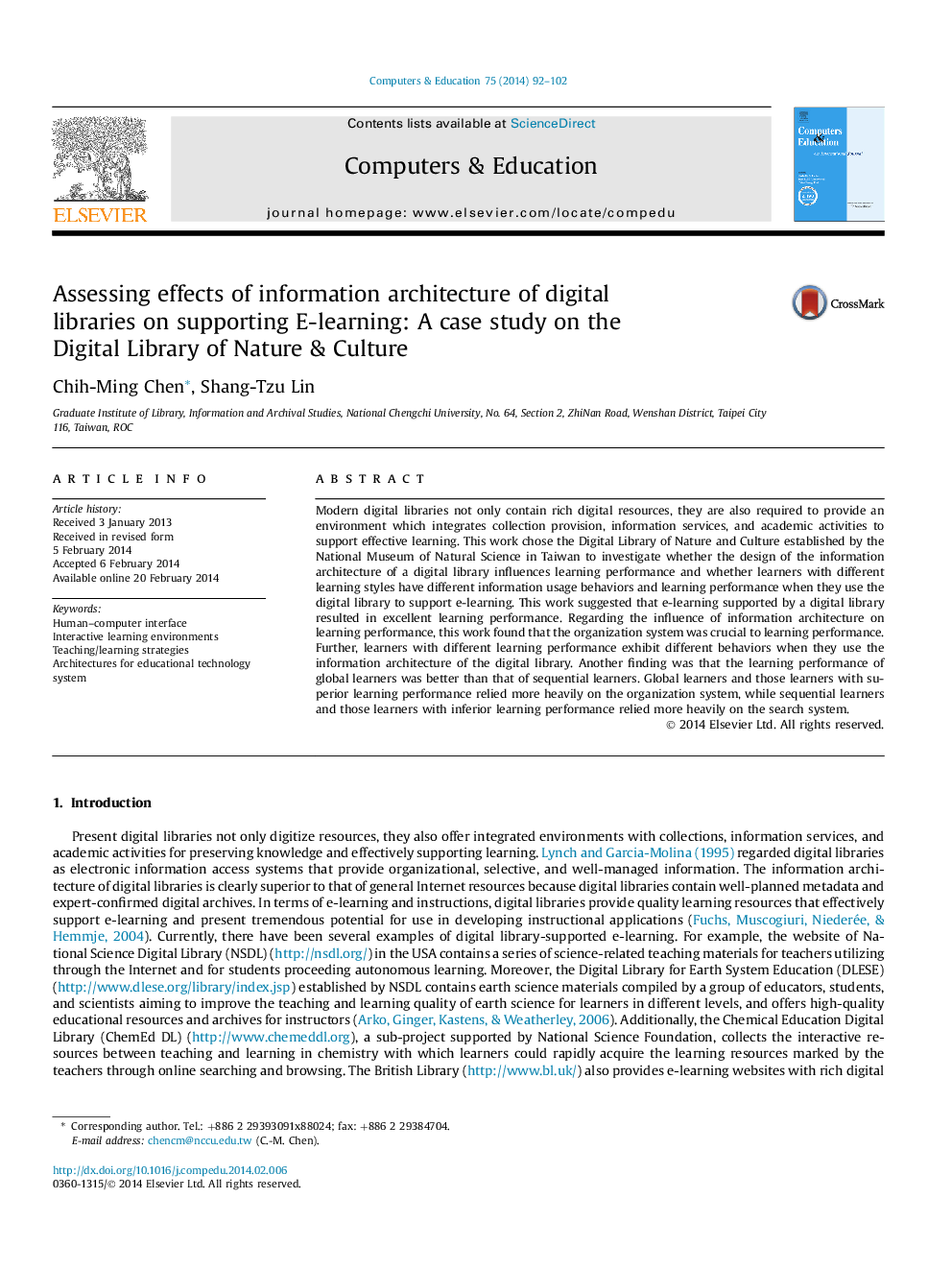| Article ID | Journal | Published Year | Pages | File Type |
|---|---|---|---|---|
| 348415 | Computers & Education | 2014 | 11 Pages |
•Organization system in the digital library is the major factor affecting learning performance.•Learners with various learning performance showed different behavior when using digital library.•The learning performance of global learners was better than that of sequential learners.•Global learners and learners with good learning performance relied heavily on organization system.•Sequential learners and learners with poor learning performance relied heavily on search system.
Modern digital libraries not only contain rich digital resources, they are also required to provide an environment which integrates collection provision, information services, and academic activities to support effective learning. This work chose the Digital Library of Nature and Culture established by the National Museum of Natural Science in Taiwan to investigate whether the design of the information architecture of a digital library influences learning performance and whether learners with different learning styles have different information usage behaviors and learning performance when they use the digital library to support e-learning. This work suggested that e-learning supported by a digital library resulted in excellent learning performance. Regarding the influence of information architecture on learning performance, this work found that the organization system was crucial to learning performance. Further, learners with different learning performance exhibit different behaviors when they use the information architecture of the digital library. Another finding was that the learning performance of global learners was better than that of sequential learners. Global learners and those learners with superior learning performance relied more heavily on the organization system, while sequential learners and those learners with inferior learning performance relied more heavily on the search system.
